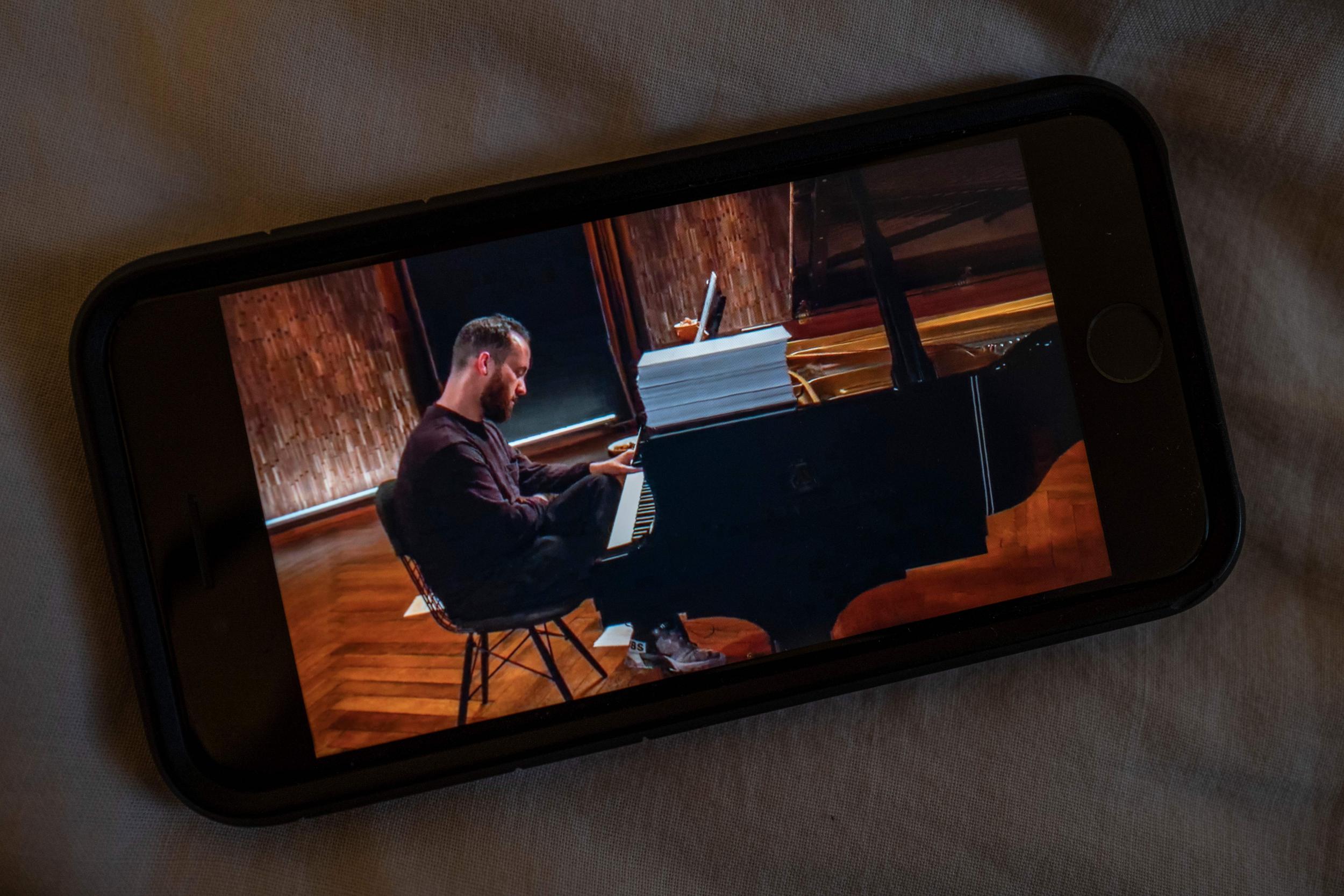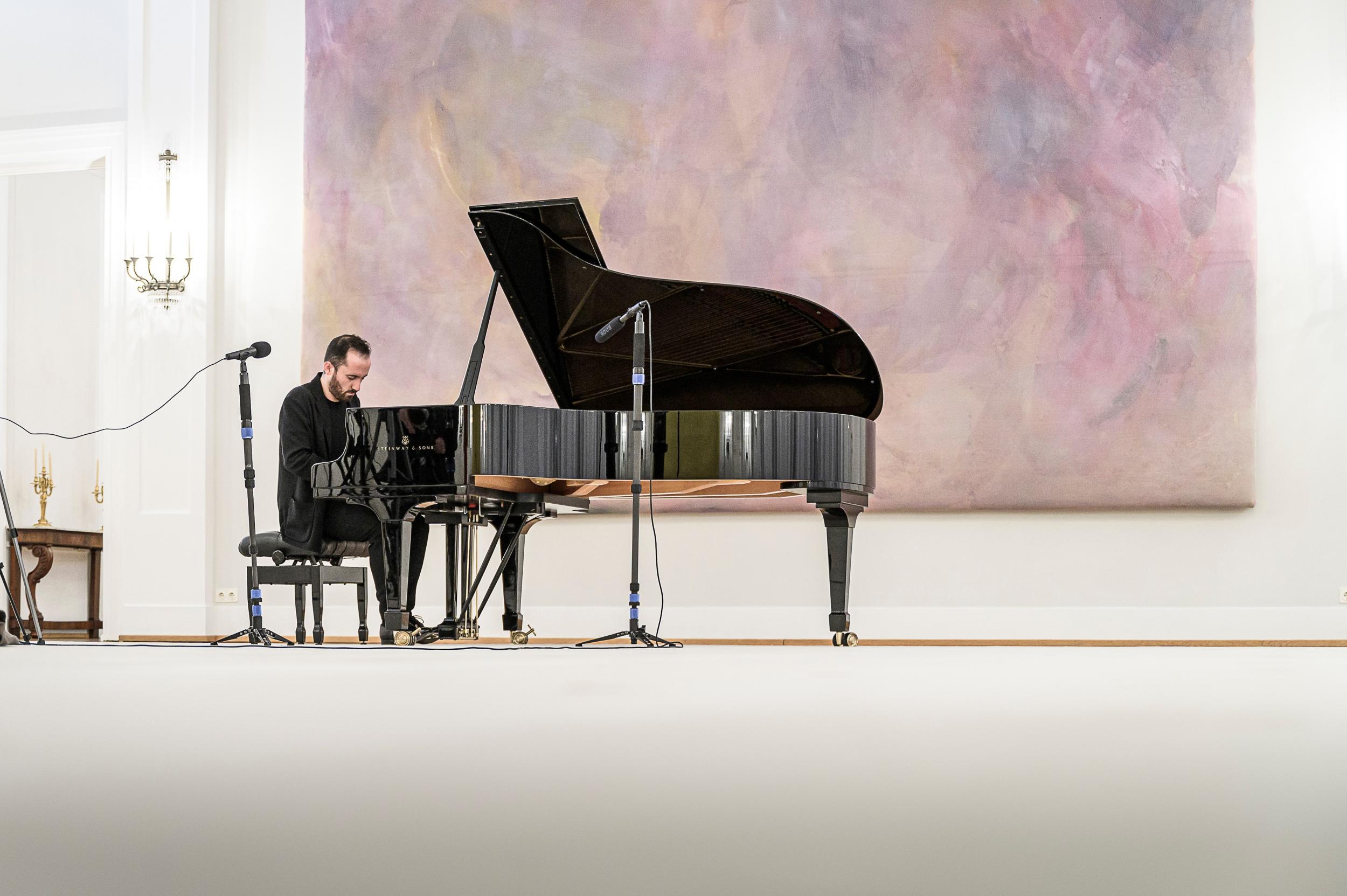How classical musicians are adapting to coronavirus lockdowns
The German-Russian pianist Igor Levit live-streamed Erik Satie’s 20-hour-long piece ‘Vexations’ last week in an act of solidarity with out-of-work musicians, writes Michael Church

Running into jazz pianist Nikki Yeoh in the street, I ask if she’s streaming like almost every other pianist in the business during the coronavirus pandemic. She replies that of all the possible performing modes, home streaming is her least favourite. Lighting and sound engineers, a proper acoustic, and an audience are essential, she says, for a satisfying experience.
She’s right, of course, but nonetheless there are some bravely shining pianistic lights amid the gloom. Llyr Williams should have been playing his Beethoven sonata cycle at the Festival de Mayo in Mexico, but instead, we get him playing to us from his soft-lit drawing room in Wales. And with this naturally rather withdrawn person, the intimacy of the performance – aided by veteran sound recordist Mike Hatch for Signum Records – is every bit as satisfying as it would have been in the Wigmore Hall. There’s a sweet calmness in the adagio of Sonata No 5 and controlled aggression in the warlike first movement of Opus 22; Llyr is clearly playing for his own pleasure, and this is contagious.
From Iceland comes something even more surprising, as Vikingur Olafsson makes up for his failure to appear at the Bergen International Festival. He is playing Grieg’s Piano Concerto live in an empty hall in Reykjavik, where a giant video shows the Bergen Philharmonic accompanying him live, under Edward Gardner’s direction, a thousand miles away in Bergen. When the cameras pan around the orchestra, they also show Olafsson as a ghostly presence on another giant screen. The orchestra are scrupulously observing social distancing rules, and the soloists and conductor wear earpieces to keep them in sync when they are not playing together, but, as Gardner observes afterwards, the set-up allows them unusual freedom, as though they were playing chamber music. And it’s a fine performance.
But the most remarkable event in this splurge of streaming came from Igor Levit, who gave us Erik Satie’s Vexations in its full form. The piece is a preposterous – and very vexing – idea: four lines of music, putting a handful of chords through a series of permutations, and the process repeating 840 times. Lasting 20 hours, it’s normally done by a relay of players, with the audience coming and going as the recital goes on into the night. One pianist who essayed it solo in 1970 rushed offstage after 595 repetitions, saying that he was falling prey to evil thoughts and visions. Levit too was alone, with bowls of nuts, grapes, and dates for sustenance, and a thick pile of identical sheets which he cast aside as he played them.

I had thought I’d drop in near the start, and revisit again at half time – just out of curiosity – but to my surprise, I was pinned down: what usually comes over as a mere stunt here became a journey through a fascinating landscape, an exploration of mesmerising beauty. I didn’t think of it as repetition: this was freshly imagined at every moment, as changes were rung in terms of dynamics, pedalling, touch, and phrasing. He allowed himself a few five-minute intermissions – basically pee breaks – and he managed some Joe Wicks-style muscle flexing with one hand at all times keeping the music going.
I went off for dinner after 90 minutes, and dropped in again after five hours: he now seemed deep in a trance, and his lips were passionately mouthing unheard words. At times the mood was gravely lyrical, at times declamatory, and at times furious: Levit explained afterwards that a long section of it was fuelled by his fury at what was happening in Minneapolis. He had been attracted, he said, by the music’s lack of “content”, but the miracle lay in the content he put into it.
“I got so tired that literally my fingers stopped moving,” he said. “Maybe a chord came in a second late, but nobody died because of it. I’m OK with that. It’s part of the performance.” The cameras moved in tandem with the calm momentum of the music, sometimes looking down over his shoulder as his hands did their stately dance. Write this off if you wish as a crazily narcissistic stunt. But for some of us, it was a unique and extraordinary ritual, and I predict that the film of it will become a cult classic.
Meanwhile, Stephen Hough – Britain’s greatest pianist – has kicked of a daily series of streamed concerts from the ever-resourceful (but for now empty of listeners) Wigmore Hall. Bravo.
Join our commenting forum
Join thought-provoking conversations, follow other Independent readers and see their replies
Comments